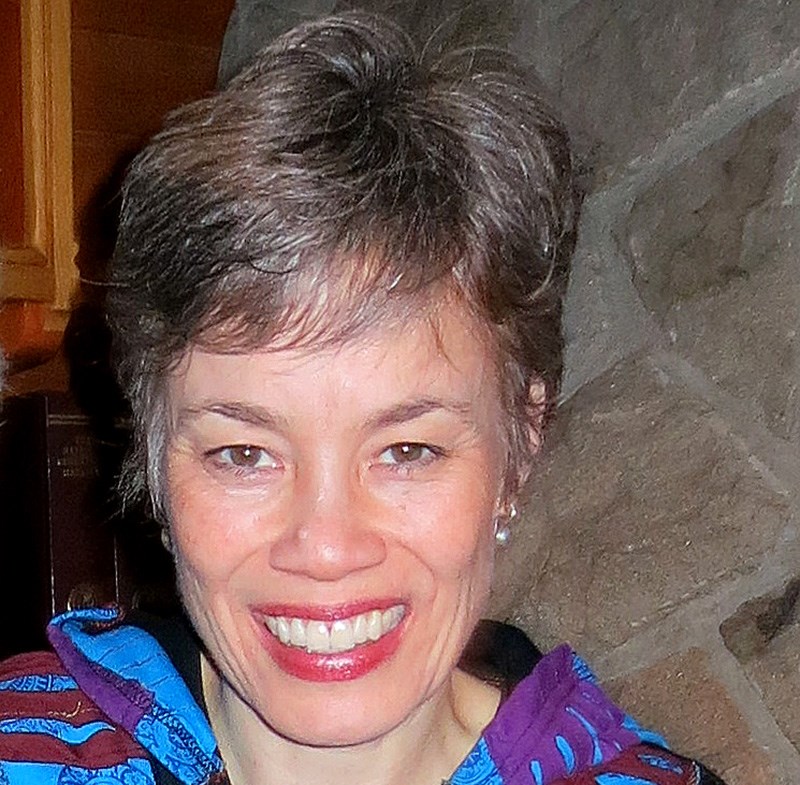I met Lea Elliott when we were both working in local government. In my eyes, she was doing the coolest kind of work: transforming the best available science into effective public policy.
Today, Elliott leads workshops based on research for her first book: Work Like Nature: Sustainability Lessons from Ecosystems for your Job or Business. Instead of focussing on lightbulbs and recycling, she started with ideas from thriving ecosystems. (An ecosystem is an interdependent system of organisms interacting with one other and their physical environment.)
Study any system in nature — a forest, grassland or desert — and one can see six principles harmoniously at work. Elliott wanted to share local stories of green innovators who are successfully incorporating these principles from nature to transform their work into a more efficient, multi-beneficial and, yes, planet-friendly, model. They are:
• Work with nature’s services: To adapt to climate change, the West Vancouver Shoreline Preservation Society is helping rebuild the district’s waterfront into a safe, naturally self-sustaining shoreline. By placing boulders and logs on the beach to capture sand and stones; creating underwater reefs to reduce storm wave energy and increase marine biodiversity; replacing flat, hard concrete walls with natural materials; and restoring creeks to flow freely over the beach, the shoreline is rebuilding itself with every storm event.
• Use non-toxic materials and processes: Green chemistry, founded by John Warner, is guiding Toby Reid in his mission to design plastics that are competitive but safe for all life. His passion for safe plastics began over a decade ago when, as a surfer, he began to notice the startling increase in plastics pollution. Today, Solegear Bioplastics is redesigning plastics to be effective, durable, lightweight, malleable and inexpensive — but also non-toxic, decomposable into innocuous substances and made of renewable feedstock. These are the same principles that the UN Environmental Program recommended in its 2014 report to tackle marine plastic debris.
• Seek and share optimal resources: Bird and bat species inhabiting the same area both prey on mosquitoes but do so at different times of the day. Twenty years ago, Modo’s founder, Tracey Axelsson, wondered if others would be interested in a car-sharing venture. Today, 15,000 Modo members enjoy access to 400 vehicles without the expense and stress of auto ownership.
• Upcycle wastes into resources: A determined agricultural entrepreneur successfully designed an anaerobic digester to transform chicken and dairy cow manure, along with food and crop waste, into two revenue-generating products: biogas (renewable natural gas for heating) and nutrient-rich weed-free fertilizer — turning poop into profitable products.
• Be diverse: A more diverse ecosystem is a more resilient ecosystem, just like a more diversified retirement portfolio will be better able to weather the storms of the stock market. Whether in terms of a variety of species, energy sources or a customer base, diversity gives an ecosystem, a neighbourhood or a business resilience to disturbances, such as changing weather, energy price fluctuations or demographic shifts. By planting wildflowers beside commercial blueberries, the native bumble bee population, complementing the imported honey bee hives, increased and farmers began to enjoy greater crop production and yield.
• Pay attention to interconnection: When B.C.’s sea otter population was hunted to extinction by 1929, the bull kelp forests, which protected our shorelines against wave erosion, started to disappear.
Otters feast heavily on sea urchins and sea urchins feast heavily on bull kelp. Hunters not only destroyed their own livelihood but left an entire ecosystem in ruin. When Fraser Valley Biogas (FVB), now owned by Heppell’s Potato Corp., decided it wanted to grow more potatoes and other vegetables but could not find affordable arable land to do so, it took a holistic systemic view of the valley’s agricultural system to identify potential options for expansion. By partnering with dairy and poultry farmers who had a “nutrient” (i.e., waste) problem but who could afford the land, FVB was able to grow its business by helping these farmers with their manure management while FVB produced nutrient-rich weed-free fertilizer to grow more vegetables on more land.
In addition to sharing these and other stories of successful local green innovators, Lea Elliott provides practical exercises to help readers begin to analyze their business and develop a sustainability framework. Join us Thursday, June 16 at Port Moody’s Gallery Bistro to meet and hear from the author herself. Details: www.meetup.com/tricity-greendrinks.
Melissa Chaun of Port Moody is an ecologist with a passion for all things sustainable. She is events co-ordinator with the Rivershed Society of BC, volunteers on various city committees and co-ordinates the monthly meetings for Tri-City Greendrinks. Her column runs monthly.



